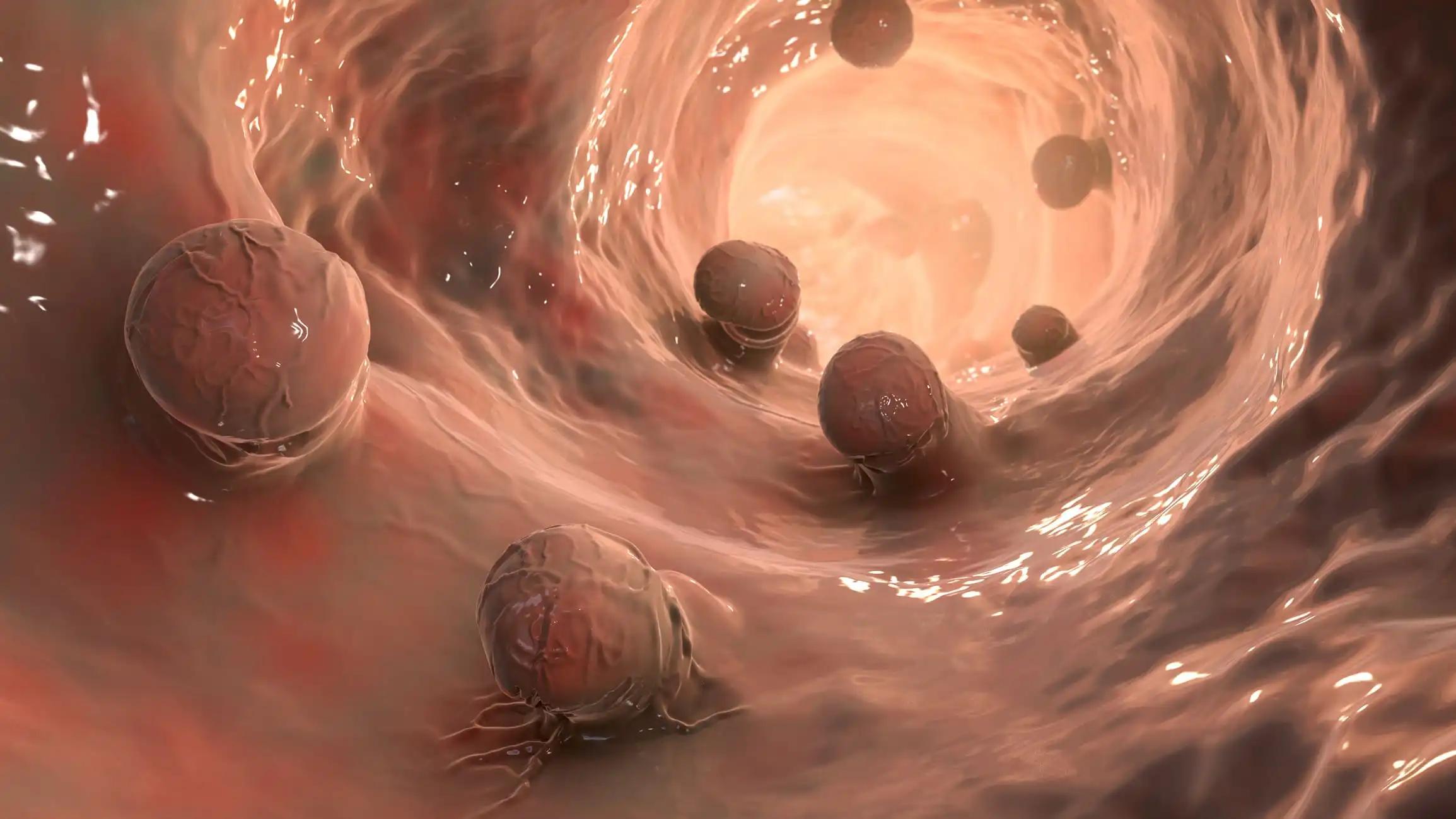KEY TAKEAWAYS
- The NETTER-2 phase III trial aimed to assess 177Lu-DOTATATE as 1L treatment in Grade 2 and 3 advanced GEP-NETs, pioneering 1L RLT evaluation in solid tumors.
- The primary endpoint was PFS, and the secondary endpoint was ORR.
- The results demonstrated significant PFS extension and meaningful ORR with 177Lu-DOTATATE vs. octreotide LAR.
Currently, there’s no universally endorsed first-line (1L) therapy for higher-grade, well-differentiated gastroenteropancreatic neuroendocrine tumors (GEP-NETs), highlighting an unmet need in gastrointestinal cancer management. Radioligand therapy (RLT) is an innovative modality bridging systemic, radiation, and surgical approaches.
Simron Singh and the team spearheaded the study that aimed to investigate the efficacy of [177Lu]Lu-DOTA-TATE (also referred to as 177Lu-DOTATATE) as a 1L treatment in patients with Grade 2 and Grade 3 advanced GEP-NETs. This trial represents the pioneering effort to evaluate 1L peptide receptor RLT in the context of solid tumors.
Eligible participants included individuals recently diagnosed with somatostatin receptor-positive advanced GEP-NETs of Grade 2 or Grade 3 (Ki-67 ≥10% and ≤55%) within 6 months before enrollment.
Patients were randomly assigned in a 2:1 ratio to receive either four cycles of [177Lu]Lu-DOTA-TATE (4 × 7.4 GBq) combined with 30 mg octreotide long-acting release (LAR) administered every 8 weeks during the treatment with [177Lu]Lu-DOTA-TATE, followed by administration every 4 weeks (177Lu-DOTATATE arm), or 60 mg octreotide LAR every 4 weeks (control arm). Stratification was conducted based on tumor grade (Grade 2 vs Grade 3) and tumor origin (pancreatic vs other).
The primary endpoint assessed was progression-free survival (PFS), evaluated centrally using RECIST 1.1 criteria. Objective response rate (ORR), a significant secondary endpoint, was evaluated hierarchically following the assessment of PFS.
About 226 patients were randomized, with 151 assigned to the 177Lu-DOTATATE arm and 75 to the control arm. The majority of tumors originated from the pancreas (54.4%) or small intestine (29.2%), with 35.0% of patients presenting with Grade 3 tumors. The median cumulative dose of 177Lu-DOTATATE administered was 29.2 GBq, and 87.8% of patients received all four doses.
The median PFS (95% CI) significantly extended by approximately 14.3 months, from 8.5 months (CI: 7.7, 13.8) in the control arm to 22.8 months (CI: 19.4, not estimable) in the 177Lu-DOTATATE arm. The stratified HR was 0.276 (95% CI: 0.182, 0.418; P< 0.0001), indicating a significant improvement in PFS with 177Lu-DOTATATE treatment.
The ORR was notably higher in the 177Lu-DOTATATE arm (43.0%) compared to the control arm (9.3%), with a stratified odds ratio of 7.81 (95% CI: 3.32, 18.4; P< 0.0001). The results for PFS and ORR remained consistent across all predefined demographic and prognostic subgroups.
Regarding adverse events (AEs) pertinent to peptide receptor radionuclide therapy (RLT), Grade 3/4 leukopenia, anemia, and thrombocytopenia occurred in three or fewer patients in the 177Lu-DOTATATE arm. Additionally, one case of myelodysplastic syndrome was reported in the 177Lu-DOTATATE arm.
The study concluded that 177Lu-DOTATATE substantially extended PFS and exhibited a clinically significant ORR compared to high-dose octreotide LAR in patients with newly diagnosed advanced G2 and G3 GEP-NETs. Safety outcomes were consistent with the established profile of 177Lu-DOTATATE.
This marks the inaugural randomized study to showcase the efficacy of peptide receptor RLT as a 1L treatment for any malignancy, signifying a potential paradigm shift in clinical practice. The promising results suggest the need for further investigations into RLT as a therapeutic option across different clinical contexts.
Research was sponsored by Advanced Accelerator Application.
Source: https://meetings.asco.org/abstracts-presentations/229376
Clinical Trial: https://clinicaltrials.gov/study/NCT03972488
Singh S, Halperin DM, Myrehaug S, et al. (2024). “[177Lu]Lu-DOTA-TATE in newly diagnosed patients with advanced grade 2 and grade 3, well-differentiated gastroenteropancreatic neuroendocrine tumors: Primary analysis of the phase 3 randomized NETTER-2 study.”J Clin Oncol 42, 2024 (suppl 3; abstr LBA588) DOI: 10.1200/JCO.2024.42.3_suppl.LBA588.



